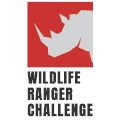Story
About the Wildlife Ranger Challenge:
Covid-19 has created a temporary safer world for Africa’s wildlife. But the floodgates are opening as the economic impacts of Covid drive more poaching. With tourism gone, the rangers who care for wildlife lack the resources to do their jobs. Lower Zambezi National Park’s ranger teams are joining thousands of others across the continent taking part in the Wildlife Ranger Challenge, a series of physical and mental challenges, culminating in a 21km virtual race on Saturday 18th September.
You can join them! Show your support and sign up to run or walk with the community game scout team from wherever you are in the world: WildlifeRangerChallenge.org/registration. Now is the time to go the extra mile to support our rangers!
---
Your contribution will help support 44 rangers and an estimated 220 livelihoods in and around the Lower Zambezi National Park in Zambia. Every dollar we raise via JustGiving will earn an additional 25% match!
Your donation also helps to unlock vital funds for other ranger teams across Africa; the Scheinberg Relief Fund will donate the equivalent of 75% of the amount raised to the Ranger Fund!
The role of rangers:
Conservation Lower Zambezi (CLZ) works in collaboration with the Department of National Parks and Wildlife (DNPW) which is underfunded and lacking in resources, leaving wildlife and ecosystems vulnerable. CLZ provides critical support to DNPW, employing Community Scouts to patrol alongside DNPW Officers in Lower Zambezi National Park. Key activities include foot patrols, aerial patrols, a K9 Unit, a Rapid Response Unit, all working in collaboration with the Investigation and Intelligence Units to respond to wildlife crime.
In 2015 and 2016, Lower Zambezi experienced unprecedented rates of elephant poaching (an Africa-wide trend), but thanks to ranger efforts, elephant poaching has decreased by 90% over the past four years.
Impact that 2020 WRC had on Organisation & Rangers:
The Wildlife Ranger Challenge has brought international attention to the impacts of the pandemic to conservation in Africa. In the Lower Zambezi National Park and neighbouring Game Management Areas (GMAs), this initiative has supported the continued work of rangers to protect wildlife and the environment during a very difficult time.
The 2020 WRC also significantly improved morale within the team, encouraging a greater sense of pride and an emphasis towards health and fitness in the field. This renewal of confidence and excitement during such a difficult year has continued into 2021.
Ongoing effects of the pandemic:
Covid-19 has drastically affected operations in the Lower Zambezi with widespread economic loss within the communities beginning in 2020 and continuing this year. Furthermore, reductions to DNPW funding coupled with economic loss for communities has had severe implications for conservation with increased pressure being placed on the environment including an observed increase in bush-meat poaching.
Species targeted include all main bushmeat products (buffalo, warthog, hippo, impala and various other antelopes). In 2020, there was a 200% increase in snaring of wildlife compared to 2019 and an increase in Human-Wildlife Conflict (HWC) of 50% from 2019 to 2020. This increase can be attributed to the fact that communities with no jobs or income have turned to subsistence poaching to sustain themselves and their families.
Rangers in the field are also faced with the added risk of contracting Covid-19 during operations, especially in busy areas (i.e within communities and on roadblocks etc.).
How support in 2021 could help:
Support from the Wildlife Ranger Challenge in 2021 from Tusk will enable CLZ to conduct DNPW and Community Scout patrols as well as the continued operation of the two forward operating bases in the Lower Zambezi National Park, Rapid Response Unit, Detection and Tracking Dog Unit and the Rufunsa Community Scout Unit. Data trends indicate that patrols on the ground coupled with specialised units lead to a significant number of arrests and a regional decrease in poaching. Therefore, continuity of these operations is critical to the ongoing protection of wildlife.
-----
Tusk Trust Limited is a charity registered in England and Wales, No: 1186533, and a company registered in England and Wales, No: 11948023.
In the US, “The Friends of Tusk Fund” donor advised fund is administered by CAF America (Tax ID 68-0480736)
Donors who pay tax in the UK can enhance their donation through Gift Aid, meaning that for every £10 raised, Tusk can recover an additional £2.50 for the cause from the UK Government.
US supporters wishing to make a tax deductible donation please click here.

